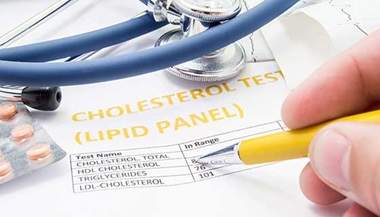How to Reduce Cholesterol: New Medication Options
In trials, PCSK9 inhibitors lower LDL cholesterol levels by 60% and may reduce cardiovascular risk by 15%. Two drugs have been approved.
“PCSK9 inhibitors are a valuable addition to our treatment options,” says cardiologist Seth Martin, M.D., M.H.S. He recommends reviewing these key questions and answers about PCSK9 inhibitors and how to reduce cholesterol with your care team.

What are PCSK9 inhibitors?
“PCSK9 inhibitors are a new class of LDL (low-density lipoprotein) cholesterol-lowering medications, delivered by self-injection, typically every two weeks,” Martin says.
“PCSK9 inhibitors prevent the liver’s LDL receptors, which regulate and clear cholesterol from the bloodstream, from degrading. So, like statins, they increase availability of LDL receptors to lower LDL. But in trials, the new PCSK9 inhibitors do it better.”
Who could benefit from PCSK9 inhibitors?
Martin says that, potentially, anyone with high LDL cholesterol levels could benefit. The early focus is on three groups:
- Those with familial hypercholesterolemia, a genetic condition affecting about 1 in 200 Americans. Statins and other treatments do not lower LDL cholesterol enough for these folks.
- Those who have had a heart attack or stroke; this is often called secondary prevention.
- Those who have statin intolerance — typically muscle pains that prevent statin use or restrict use to lower-intensity statins.
What will PCSK9 inhibitors cost?
The price is a key reason PCSK9 inhibitors may not be for everybody. Annual treatment currently can run into the thousands. “Whether they are a financially viable option for folks will depend on insurance,” Martin says. “How much are the co-pays? How restrictive is it to get them approved?”
What risks are associated with PCSK9 inhibitors?
Trials to date have shown no significant risks associated with PCSK9 inhibitors. Everything looks good, Martin says, but some questions remain unanswered:
- What is the long-term impact of very low-level LDL cholesterol? “The trials were 2 to 3 years. We expect benefits to accrue over time.”
- Are there any side effects or interactions with other drugs? So far, no, Martin says, but there is more to learn.
- Do PCSK9 inhibitors prevent cardiac events such as heart attacks? “Yes.” Martin says.





